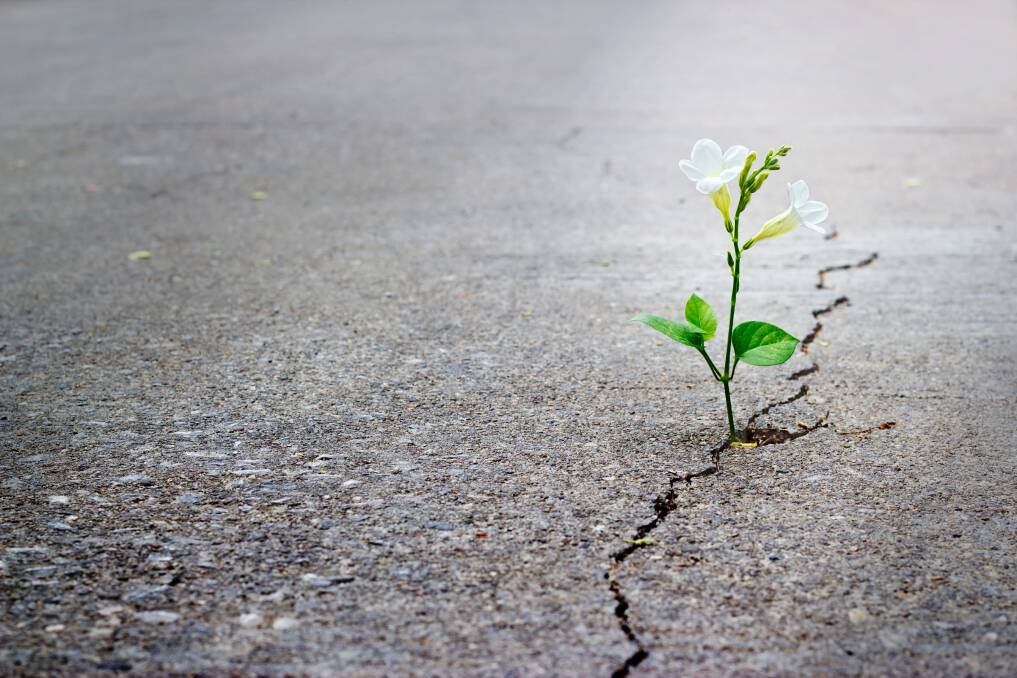Honestly people, we are doing badly. It's the time of the year when we should be connecting with each other and filled with hwyl ( a wonderful Welsh word meaning stirring emotion and enthusiasm) but instead we are miserable.
Subscribe now for unlimited access.
or signup to continue reading
Yes, here we are, at the delicious, peculiarly Australian, collision of Christmas, Kwanzaa, Chanukkah and summer, and new research from Headspace, says almost two-thirds of young people feel left out often or some of the time with many feeling they are cut off from the world.
Three in five young people lack companionship often or some of the time and nearly that many feel isolated from others. Young women are more likely to feel greater feelings of isolation from others compared to young men. And it's not confined to the young.
What is loneliness? Fifty years ago, sociologist Robert Weiss conceptualised it as a gnawing, chronic disease without redeeming features. Two Australian academics, Thomas Astell-Burt of the University of Wollongong and Xiaoqi Feng at the University of NSW, have a more manageable description - "a felt deprivation of meaningful connections, companionship, and camaraderie".
And if we feel that way, it's a signal that we should (re)connect with what nourishes us and brings meaning to our lives. We might be missing someone we love or we might feel disconnected from a social group, our workplace or even our neighbourhood.
But Astell-Burt and Feng make this point - which is new to me and I hope it is new to you too. Some of us feel lonely because we have an inability to connect with nature, outside of other humans.
"Some people draw great strength, connection and hope from the 'more than human world' that is perceived to be more dependable and less judgmental.
"Think dogs, but also significant trees and special places like parks," they say.
But what really scares me about their thesis is this. We can't find meaningful connection because, say the two authors, in Australia (and elsewhere), we have been inadvertently building for loneliness over decades.
Those suburbs where you need a car to get to anything, where there are no meeting places. Very few parks, no libraries for kilometres, no public swimming pools.
I have young friends who live in areas where there are no childcare centres. They truck their kids two or three suburbs away and then it becomes harder to build a little local community.
We need all kinds of ways to connect with others in our neighbourhoods - those morning tai chi classes for seniors, the playgroups which connect both the parents and the children, the local dog owners group (I'm not a fan of dogs myself but love to see how their owners connect early in the morning or late in the afternoon, the labradoodles pawing around with the terriers).

Those accidental meetings we have in parks and playgrounds are gone because of our reliance on the car. And that's what Astell-Burt and Feng call "lonelygenic" environments in their paper in The Lancet Planetary Health. We stay in our houses, we don't interact with neighbours.
And no matter how much you scroll on Instagram or Twitter, on Facebook or one of those innumerable unnameable start-ups, social media won't unlonely you.
Feng and Astell-Burt say social media makes you feel more sad and alone (although I confess I look at beautiful mountains and rivers as a form of calm in my otherwise non-calm life).
"Even the best experience of social media is unlikely to enable people to fully transcend a lonelygenic environment in a sustained way. So at best, it's a bandaid over a bigger problem and at worst, it aggravates an already challenging set of circumstances."
So how can we unlonely our lives?
You can't always and sometimes it's OK to be alone or to be lonely, to sit with our thoughts in the quiet and to recognise why our relationships with other people matters.
But there's also something we can to do change our environments. Be a civic participant.
Astell-Burt and Feng say it's important to take every opportunity to engage and work with local councils. Be part of the planning and design of our common spaces. Campaign for more parks and more trees. Love and protect the trees we have.
Honestly, I have much sympathy for environmental campaigners who lock themselves onto trees, blockade rivers, chain themselves to cars.
They are doing it for all of us. It doesn't feel like it at the time of the disruption but they are doing the right thing.
READ MORE:
That might sound boring to participate in local government - and it's certainly no instant fix. Every time we engage with any level of government, it feels like it takes an eternity.
And sometimes building consensus can be more exhausting than feeling lonely. But think of it as building our much less lonely future.
And I love how the authors of these studies have quantified how much parkland will make us feel better.
One of their studies shows people with about 30 per cent parkland nearby may reduce the odds, by a sizeable chunk, of becoming lonely over four years.
More trees make our streets cooler and more walkable. And that makes it more likely for us to bump into others, chat, reconnect.
I'm looking forward to a couple of weeks of getting out on the beach and in the bush, doing my very best to recognise birds and failing madly, wondering which particular variety of banksia I'm walking by and reconnecting with friends and family after what seemed like a torrid few years.
May we all have a happier, more connected and safer 2023, with more trees, more sea and some blue sky.
- Jenna Price is a visiting fellow at the Australian National University and a regular columnist.


